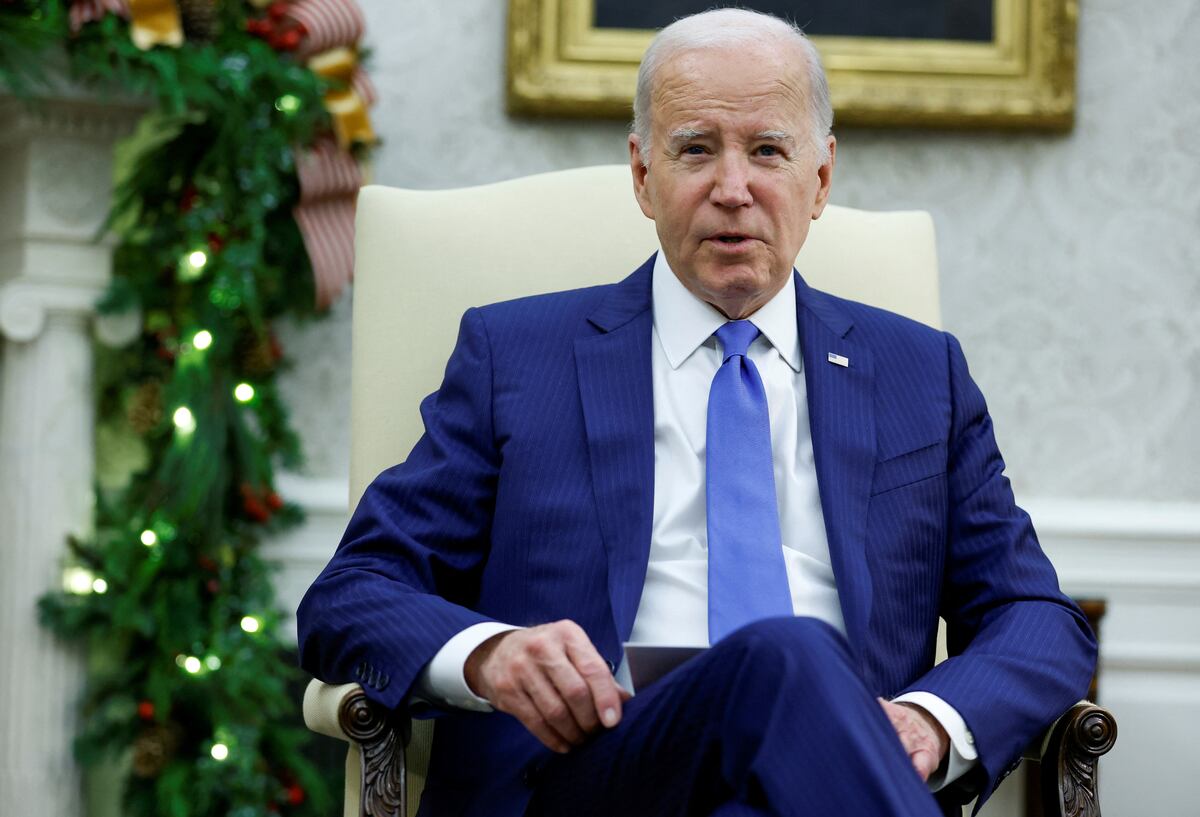
US President Biden’s first trip to Africa has been pushed back
US President Joe Biden has pushed back his trips to Germany and Angola, which may have killed the excitement surrounding what was supposed to be his first trip to Africa as president.
Tuesday, the White House confirmed what had been said on social media for the past week: Mr. Biden would not be going to those two countries as planned from October 10 to 15.
White House Press Secretary Karine Jean-Pierre said on Tuesday, “Given the projected path and strength of Hurricane Milton, President Biden is delaying his upcoming trip to Germany and Angola in order to oversee preparations for and the response to Hurricane Milton, as well as the ongoing response to the effects of Hurricane Helene across the Southeast.”
Over 200 people have died in Hurricane Helene, which hit the US ten days ago. Rescuers were still looking for hundreds of people who went missing in the storm in the southeast of the country.
Most of the deaths happened in North Carolina, where at least 1,800 people died in an earlier storm. At least 780,000 homes were damaged, and towns in its path lost power.
Middle East conflict
In Israel, a new war has broken out in the Middle East, and Israeli forces have been bombing southern Lebanon to target Hezbollah terrorists. This is another problem that Mr. Biden has to deal with.
There were rumors that the event might be put off because of the situation in the Middle East. This was because world leaders were trying to get a ceasefire and keep Israel and Iran from going to war.
The White House didn’t say when the new dates are, but President Biden is stepping down from running for a second term and will be leaving office.
In Angola, his visit would have been the first of its kind in Africa. Officials saw it as both a political win for the southern African country and a chance for Luanda to settle scores with different parts of the country’s own government to improve the country’s human rights record.
Lobito Alley
Luanda is an important part of the Lobito Corridor, which is a multibillion-dollar infrastructure project that the US and its allies are using to fight with China for minerals in Angola, the DRC, and Zambia.
In an announcement about the October 13–15 visit, the White House talked about the project and also brought up problems of democracy.
The two leaders would have talked about working together more on issues they both cared about, such as strengthening economic partnerships that protect workers and keep our companies competitive; celebrating a signature project of the G7’s Partnership for Global Infrastructure and Investment (PGI), which moves forward our shared vision for Africa’s first trans-continental open-access rail network that begins in Lobito and ends in the Indian Ocean; boosting democracy and public participation; stepping up efforts to protect the climate and make the switch to clean energy; and making the world safer and more secure.
The visit was supposed to happen at the same time that Angola is hosting the US-Africa Business Summit in the middle of next year. More than 1,500 delegates, heads of state and government, and other world leaders are due to attend.
People in Luanda say this shows that the US is becoming more interested in Angola and gives them an edge over China and Russia.
China owes the most money to Angola in Africa, and Russia supplied the country with the most weapons during its civil war and trained its top army generals.
President Biden and President Lourenço met at the White House in November of last year to mark 30 years of formal ties between the two countries.
Angolan civil society also planned to use a meeting with President Biden to ask him to push for more human rights and democratic space when he meets with President Lourenço, according to José Gama, a political analyst.
All Categories
Recent Posts
Tags
+13162306000
zoneyetu@yahoo.com



